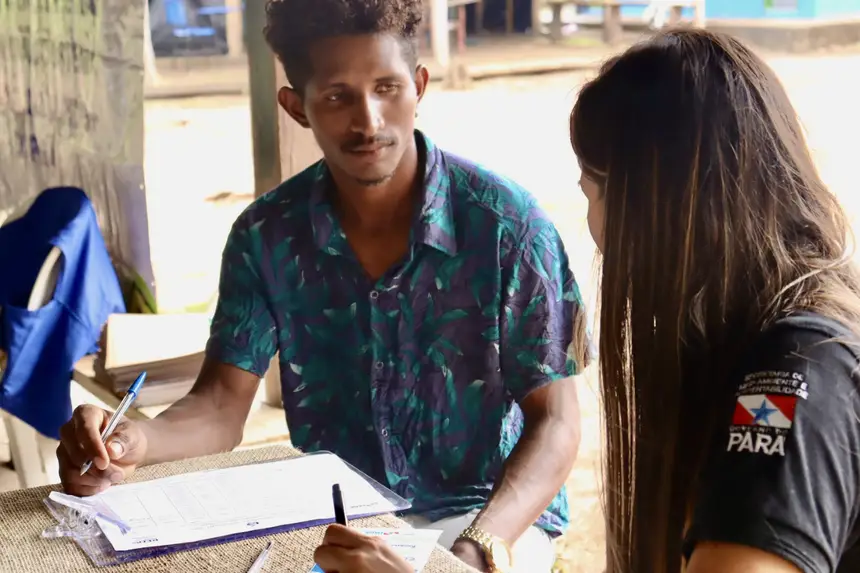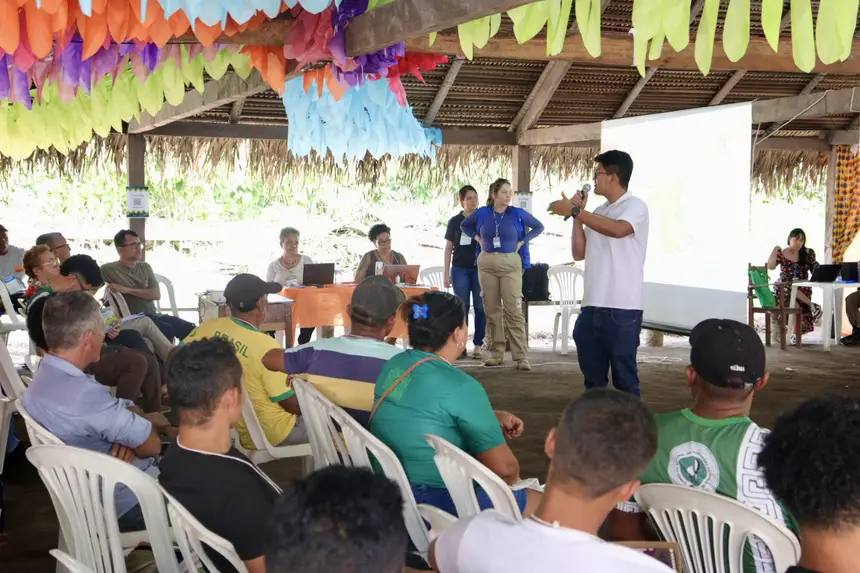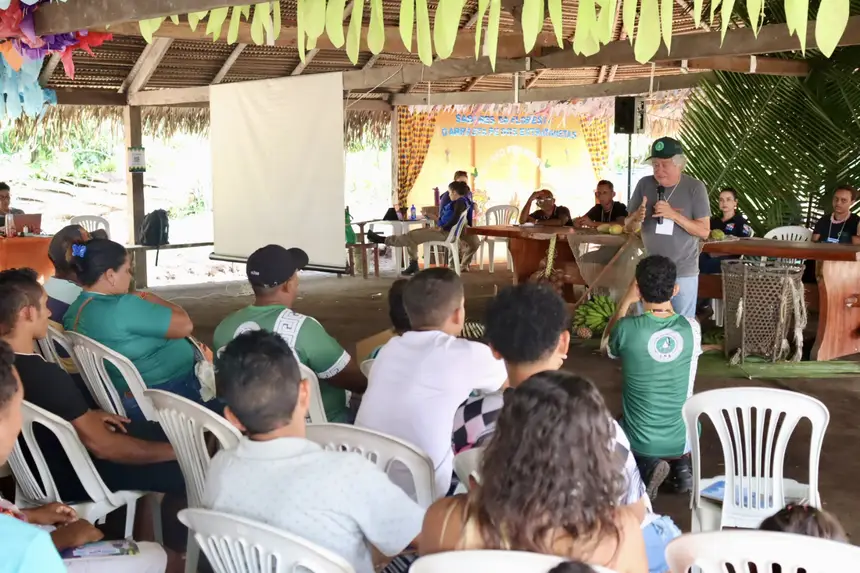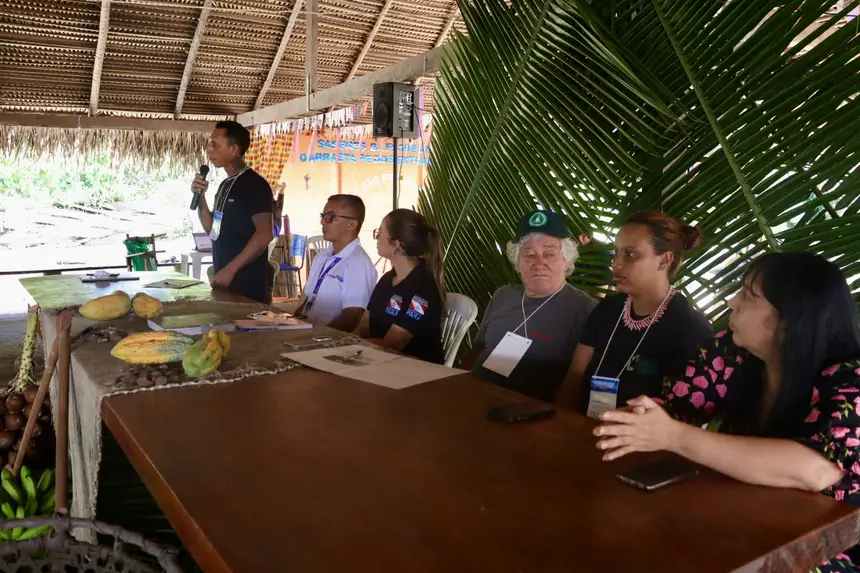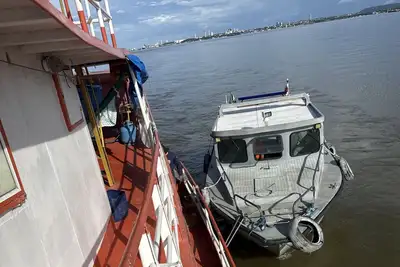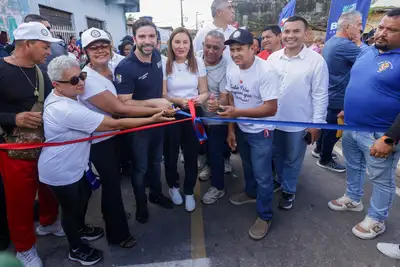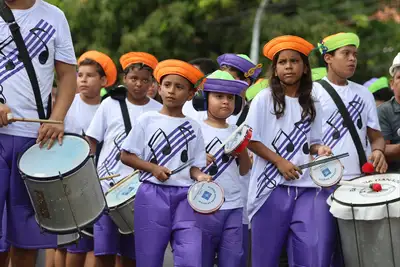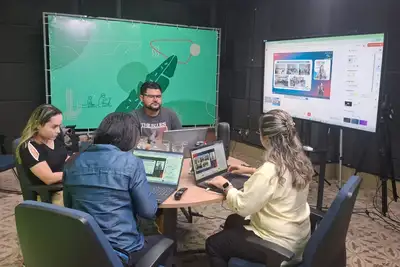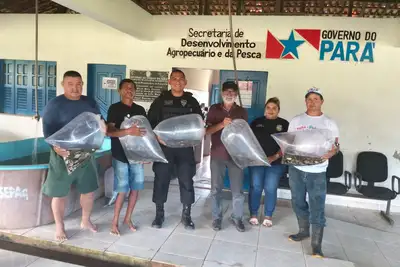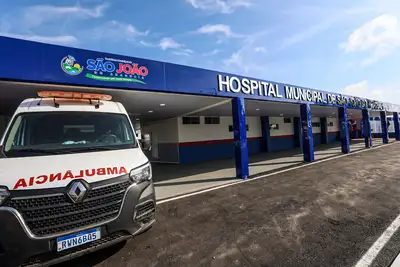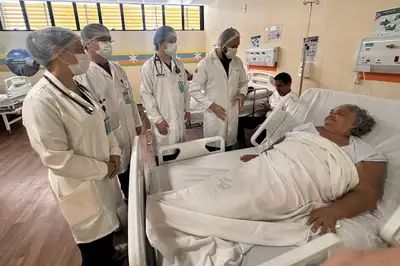The Government of Pará conducts consultation on REDD+ with extractive communities in the Iriri Extractive Reserve
The meeting is part of the largest listening and consultation process ever conducted with traditional peoples and communities in the State
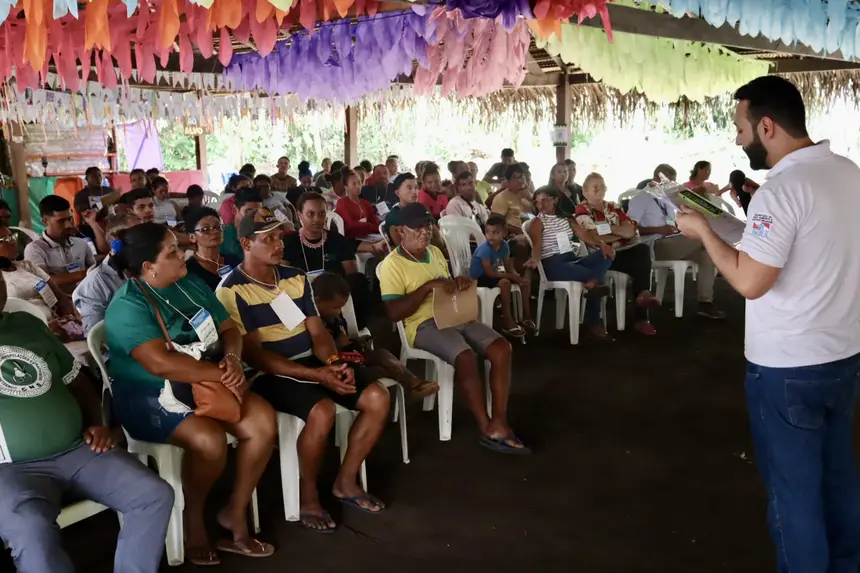
This week, the State Secretariat for the Environment, Climate and Sustainability (Semas) began another stage of the Free, Prior and Informed Consultation (CLPI) of the REDD+ Jurisdictional System of Pará (SISREDD+), this time in the Iriri Extractive Reserve (Resex), located in the municipality of Altamira, southwest of Pará.
The meeting, which is part of the largest consultation process ever conducted with Indigenous Peoples, Quilombolas, Traditional Communities, and Family Farmers (PIQCTAFs) in the state, takes place from June 25 to 27 with extractive communities from the Altamira Region, and features an extensive program of informational panels, debates, participatory dynamics, and consent meetings.
Representatives from the State, the National Council of Extractive Populations (CNS), as well as local community leaders were present.
The opening table included the presence of Indara Aguilar, director of Climate Change at Semas; Josimar Cunha Vasconcelos, coordinator of the State Secretariat for Family Agriculture (Seaf); and Atanagildo de Deus, coordinator of CNS. The program was conducted by Semas technicians and involved presentations on the construction of REDD+ in Pará, the safeguards system, the draft law of SJREDD+, and the benefit-sharing proposal.
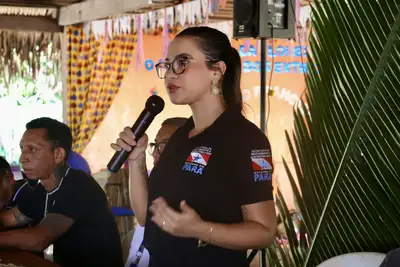
“We are in the Iriri Extractive Reserve conducting another stage of the Free, Prior and Informed Consultation on the REDD+ Jurisdictional System of Pará. This moment is fundamental not only for the construction of this public policy but also to strengthen social participation and ensure that the needs and expectations of the communities are heard and considered. Here in the São Francisco community, with the presence of other surrounding communities, we discussed topics such as benefit-sharing, subprograms, and the safeguards system, gathering valuable contributions directly from those who live and protect the forest,” explained Indara Aguilar, director of Climate Change at Semas.
During the three days of activities, participants could ask questions, contribute suggestions, and evaluate the proposals for the regulation of the jurisdictional REDD+ system in the state. One of the main objectives of the consultation was to ensure that communities clearly understand what the carbon market is, how the generation of jurisdictional credits works, and how they can access benefits from the environmental conservation they traditionally carry out.
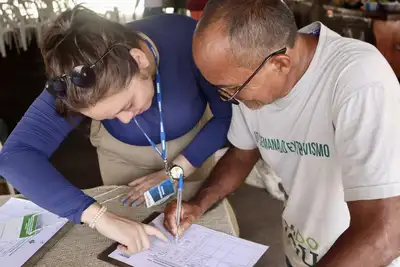
“The consultation here in the Iriri Resex positively surprised me. Projects built from the top down almost never meet the real needs of the territory. When there is direct listening from the communities, as is happening now, there is a greater chance that public policies will actually be effective. My expectation is that, at the end of this process, the populations that live and protect the forest — the true guardians — are directly contemplated with concrete actions that improve their quality of life. These are the people who contribute the most to preserving the climate, but unfortunately, they are the least benefited. Often, policies do not even reach here,” highlighted Francisco de Assis, president of the Terra do Meio Network.
The CLPI program followed the principles of Convention 169 of the International Labour Organization (ILO), respecting the right of traditional communities to be consulted on public policies that directly impact their ways of life. The process also included internal deliberation meetings and a plenary for collective consent.
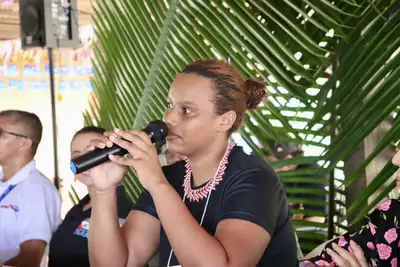
“It is very significant that this consultation is happening within the Ecological Station of Terra do Meio. Normally, these processes occur in cities, where a large part of the communities cannot participate. Being here, inside the reserve, allows more people to have a voice. This strengthens the protagonism of traditional populations, who are the true guardians of the forest and life. Hearing directly what they think and desire is essential, especially because, historically, these groups have been silenced in many decision-making spaces,” stated Liliane Santos, local leader.
The REDD+ Jurisdictional System integrates the climate policy of the Government of Pará and is based on international climate financing mechanisms, where the proof of reduction in greenhouse gas emissions allows for the generation of carbon credits. These credits, when sold, can generate revenues that should be reinvested in public policies aimed at conservation, sustainability, and improving the quality of life of the communities that live and care for the forest.



